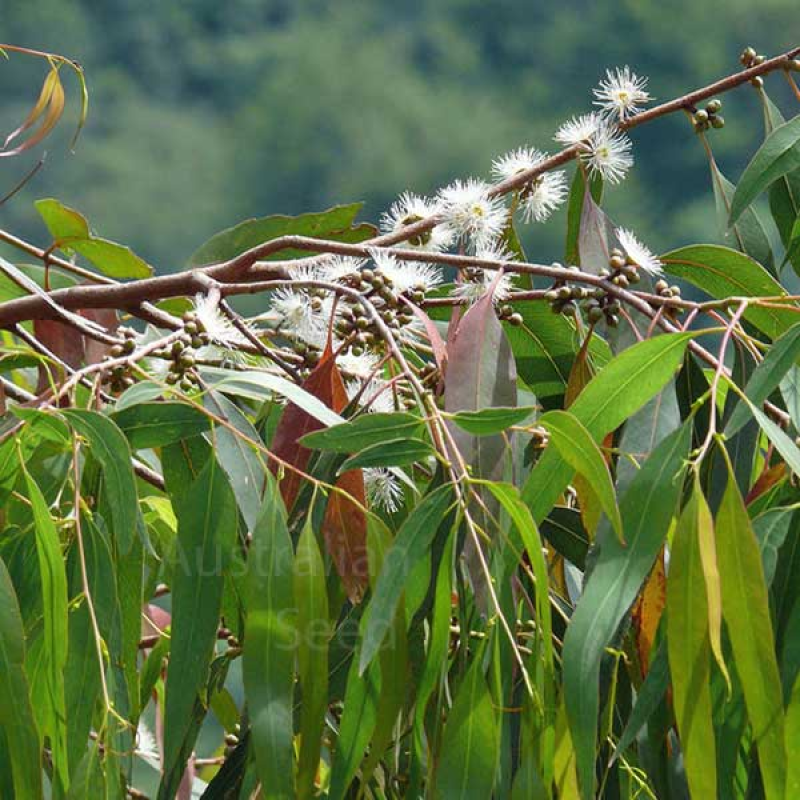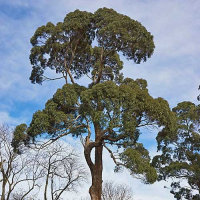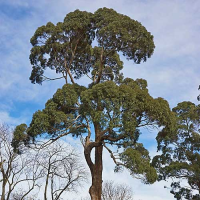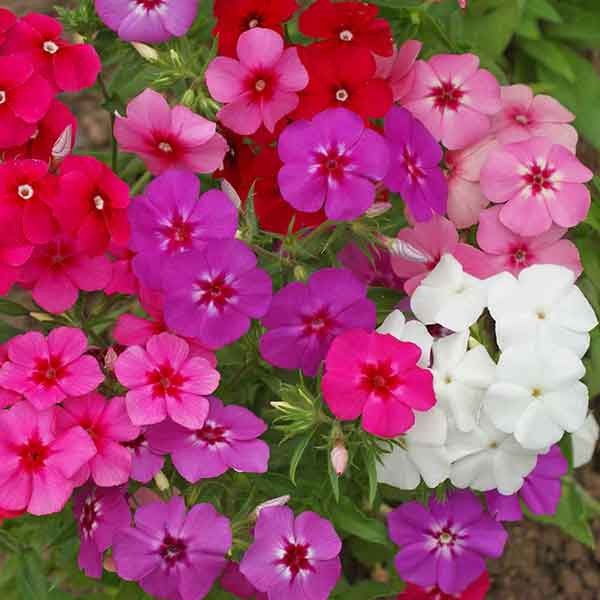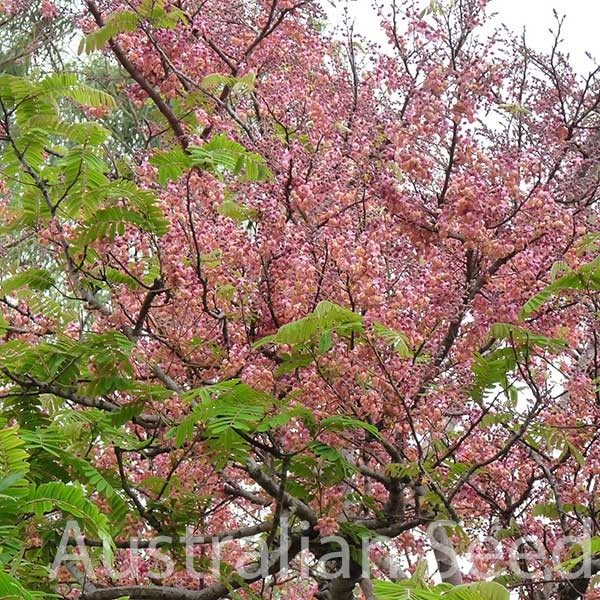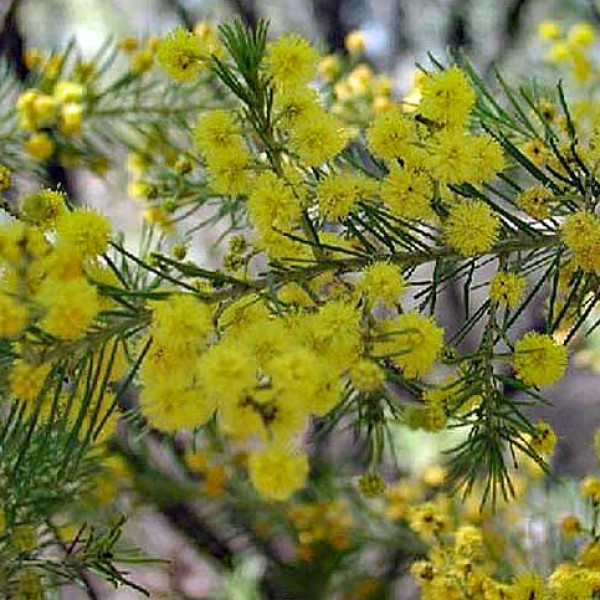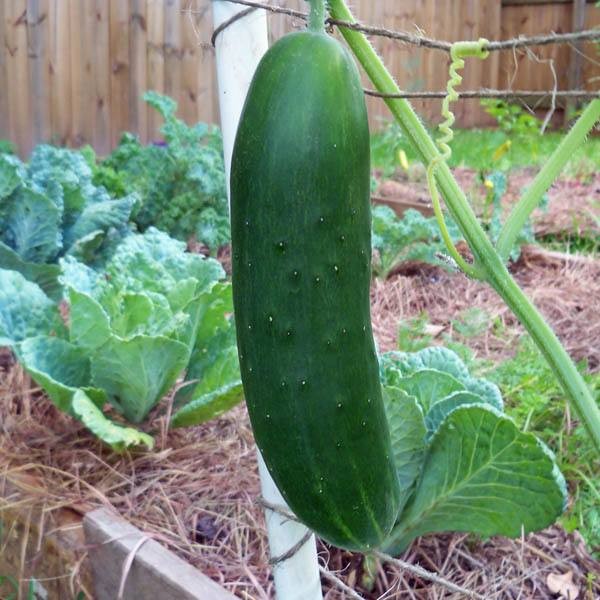We ship Internationally and Australia-wide | Phytosanitary Certificates are available for international orders.
Due to high order volumes, our handling time has been extended to 5-7 business days. We apologise for any inconvenience and appreciate your patience.
Endangered in the wild this cold-tolerant eucalypt is commonly known as the Camden woollybutt or Paddy's river box.
A quick-growing medium to large ignotuberous tree with a fibrous bark on the trunk and larger lower branches before becoming smooth on the upper limbs.
Juvenile and coppice regrowth foliage are broadly lanced to egg-shaped arranged in opposite pairs with adult foliage narrow and lance-shaped.
Flowering occurs during the summer and autumn months in clusters of 7 buds that open to display white flowers followed by small bell-shaped conical fruits containing the seed.
Endemic to a small area of New South Wales and naturalized around Emerald in the Dandenong Ranges of Victoria.
Endangered under the Environment Protection and Biodiversity Conservation Act of 1999 and the New South Biodiversity Conservation Act of 2016.
Grow notes:
Eucalypt's germinate readily from seed and are generally considered one of the easiest natives to grow from seed.
Depending on the species Eucalyptus seed comes in various sizes from very fine to several millimetres long.
As a rule of thumb seed that is fine should be sown on the surface of a porous mix and not buried. Seed 1 to 2 mm in diameter can be covered very lightly and seed from 2 mm up can be sown to a depth of the seed width.
Cold stratification of 28 days is recommended for this Eucalypt. Cold treatment is not critical for germination to occur but should give increased germination rates.
This is cool mountain species of Eucalypt that in its native range has a cold winter prior to germinating in spring. This can be replicated by cold stratification in the refrigerator for 28 days. Alternatively overwintering in the garden in cold climates will assist germination.
Although seed can be sown most of the year in many parts of Australia seed is generally best sown in spring or autumn in temperate climates, avoid the coldest and hottest months of the year. The optimum germination temperature for germination is around 16-22°C
- Sow seed on surface of a porous seed raising mix. The seed will lodge in the pores of the mix once watered.
- Sprinkle a very light covering of the seed raising mix over the seed if required to hold the seed in place. Do not bury seed deeply.
- Water with fine mist spray to avoid disturbance of the seed.
- Ensure the mix is moist but not water logged.
- Place the container in plastic bag.
- Place the bagged container in the refrigerator for 28 days.
- Germination generally occurs in 10-28 days when moved to warmer temperatures after the period of cold treatment.
General note: Seeds of many natives are dormant and require specific conditions or pre-treatment for germination.
Do not be too hasty to discard seed that does not germinate, seeds will often lay dormant until the conditions are similar to their natural requirements for germination to occur. Containers put to one side will often surprise long after they were discarded.
Best sown in spring or autumn in temperate climates, avoid the coldest and hottest months of the year. The optimum temperature for germination is around 18-22°C
Sow seed in a seed-raising mix just below the surface.
Water with a fine mist spray to avoid disturbance of the seed.
Germination generally occurs in around 10-28 days.
Please note:
These growth notes are provided as guidance only and do not guarantee successful germination.
If you are uncertain about the requirements for importing seeds into your country, do not hesitate to contact our Export Manager at Australian Seed.
Being a registered Export Establishment, we have an officer who can help you obtain Phytosanitary certificates if needed.
It is important to note that the buyer is responsible for clearing the goods through customs and paying all associated charges, including import fees and taxes. Please note that we cannot accept returns due to Australian quarantine restrictions.
You can find the complete International terms and conditions by clicking on this link
At Australian Seed, we take pride in our extensive network of trusted suppliers and collectors who work with us to provide you with an unmatched selection of top-quality products.
Whether you are searching for a specific item or need to make a bulk purchase, our team is here to help. Our dedicated customer service representatives can guide you through our vast inventory and assist you in finding exactly what you need.
We are committed to providing our customers with the highest level of service and support.
Please don't hesitate to contact us If you require any assistance. Please don't hesitate to contact us at Australian Seed

